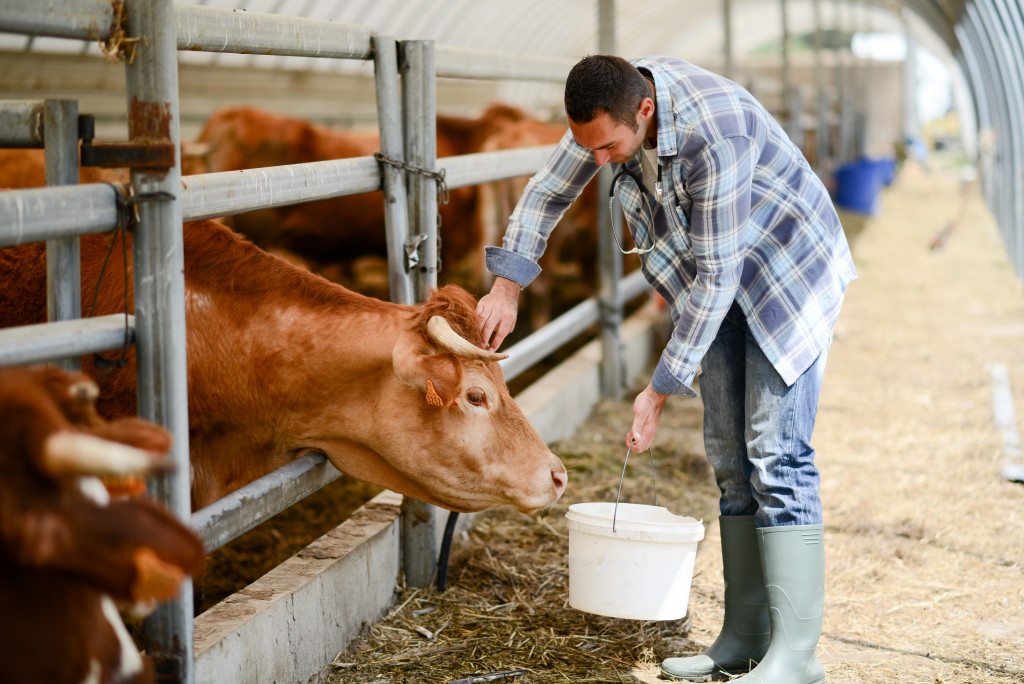Now more than ever, people are interested in where their food comes from and how it gets produced. Unfortunately, the Food and Agriculture Organization of the United Nations (FAO) estimates that the agricultural sector emits around 9.3 billion tonnes of Carbon Dioxide equivalent each year. As a result, eco-conscious farming is on the rise.
But just because you’re running a farm that uses sustainable practices doesn’t mean you’re doing it right. Here are some mistakes to avoid when running an eco-conscious farm:
Not Planning for Inclement Weather
If you live in an area with unpredictable weather patterns, it’s crucial to plan for when bad weather strikes. Not being prepared for inclement weather can lead to big problems down the road, so it’s best to be as ready as possible.
It could mean anything from having a backup water source to having a plan for dealing with crop damage. You can also invest in better-quality soil, use cover crops to protect the land from wind and rain, or invest in low-water irrigation systems to help conserve water.
Either way, it’s important to take the necessary precautions so that you can still produce high-quality crops while using sustainable practices.
Using Too Much Pesticide
Pesticide use is one of agriculture’s most significant sources of carbon emissions. While it can be tempting to use them to protect your crops, it’s important to remember that excessive pesticide use can lead to long-term environmental damage.
Instead, focus on preventive measures, such as rotating crops, using natural pest control methods, and ensuring that your soil is in good condition. Doing so will help reduce the need for pesticides while allowing you to grow healthy crops.
Another way is to learn more about biopesticides and natural alternatives to traditional chemical pesticides. These can be an effective way to control pests while still being eco-friendly.
Not Thinking About Waste Management
Every farm produces some waste, and it’s vital to have an effective waste management system in place. That way, you can ensure that none of your waste pollutes the local environment.
Composting is one of the most effective ways to deal with farm waste. It also helps build up soil nutrients and improves soil health, which is excellent for sustaining long-term crop production.
Additionally, you can recycle and reuse things like cardboard boxes, plastic containers, and other materials you can repurpose instead of throwing them away.
Practicing this kind of sustainable waste management will help you keep your eco-conscious farm running smoothly. More so, some states offer tax credits and other incentives for farms that adopt sustainable practices.
Ignoring Animal Welfare
Animal welfare is an integral part of any eco-conscious farm, and it’s essential to ensure that your animals are well taken care of. Ensure you provide them with enough space, shelter, and access to clean water. Additionally, give them a balanced diet that meets their nutritional needs.
Another area where you can reduce your impact is responsible breeding. Be sure to research the best practices for animal husbandry, and never use inhumane methods of production or transport. Suppose you plan on raising cattle. In that case, you can look into quality Charolais bull breeders to ensure you’re getting healthy, ethically raised livestock. It’s also essential to pay attention to any laws and regulations that may be in place for animal welfare.
Being proactive about animal welfare is essential to keep your eco-conscious farm running smoothly. You’ll also ensure that your animals are treated with the respect and care they deserve.

Not Thinking About Energy Efficiency
Energy efficiency is another key factor in running an eco-conscious farm. Reducing your energy consumption is a great way to reduce your carbon footprint and save money in the long run.
There are a few different ways you can make your farm more energy efficient. You can invest in renewable energy sources like solar or wind power. You can also install energy-efficient fixtures and appliances to reduce your overall consumption. This includes LED lighting, efficient water pumps, insulation, and more.
It’s also important to pay attention to your farm equipment, such as tractors and other machinery. Upgrading your equipment to be more efficient can help you save money and reduce your environmental impact. By taking the time to make your farm more energy efficient, you can ensure that it is truly eco-conscious.
When it comes to running an eco-conscious farm, there are a few mistakes you’ll want to avoid. The above are a few of these mistakes, but taking the time to research and plan is essential for sustainable farming. Doing so will help you create a farm that is both profitable and environmentally friendly.

